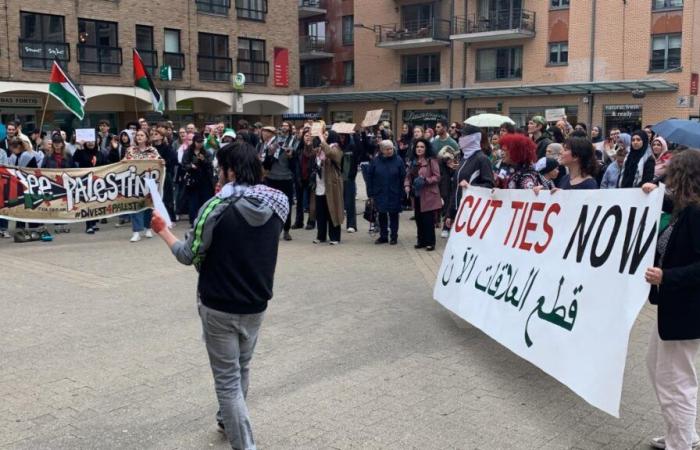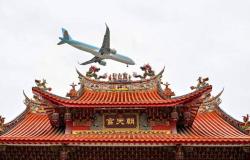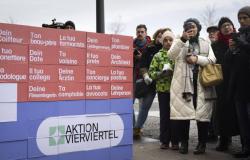LCalls for an (academic) boycott of Israel are becoming more and more pressing, and not only from the outside. At the end of October, some 3,000 Israelis, including prominent veterans of the struggle against the occupation, called on the international community, in newspapers such as Liberation, The Guardian et The Morningto “use all possible sanctions to impose an immediate ceasefire”.
You read correctly, the Israelis are calling for sanctions because they believe that the country can no longer escape the current genocidal logic that it has been committing with complete impunity for more than a year. Among the best-known signatories are Professor Aliza Shenhar, former rector of the University of Haifa, and Professor Lev Grinberg, former president of the Israeli Sociological Society. The support of these figures and others who, before, had never spoken out in favor of international pressure, underlines the urgency of this call.
“Save us from ourselves” – not by empty words, but by mighty actions
The call of these thousands of Israeli protesters is crystal clear: without external pressure, Israel continues to believe that it can do anything. Thanks to continued international cooperation and arms deliveries, Israeli public opinion assumes that Israel enjoys a free pass, that any violation is tolerated. Meanwhile, increasingly heinous war crimes are being committed, such as the ethnic cleansing that the Israeli army recently undertook in northern Gaza.
Israeli critics say their society lacks effective counter-power from within. It is very clear that Israeli universities, as an institution, support the war and marginalize internal critical voices.
Therefore, our institutions too, including Belgian universities, must now sever their ties with Israeli institutions and cancel cooperation agreements. This is our moral and legal duty, also towards our Palestinian academic colleagues, many of whom were murdered while their universities were wiped off the face of the earth – while Belgian universities continued to chatter without lifting a finger.
Also read
These cultural institutions which declare themselves “apartheid free zones”
We expect our universities to lobby, together with other European universities, for Israeli universities and companies to be excluded from European funding programs and, ultimately, for the association agreement to be suspended .
Furthermore, the Israeli appeal clearly shows why a complete academic boycott is the only way to force change, and why the counter-arguments from Belgian academic institutions are insufficient. With so many critical Israelis collectively calling for a boycott, the traditional rhetoric that an academic and economic boycott would also affect Israelis critical of their government, and that such a boycott would stifle the few remaining dissenting voices, may – finally – be thrown into oblivion. The opposite seems to be happening: it is precisely because of the absence of international pressure that the massacres continue and that Israeli society and the few critical voices are increasingly losing their grip on government policy. .
Harsh sanctions could help reverse this dynamic and reduce support for government policies. How many times have we heard governments say they are “shocked” and express “disgust” at alleged “excesses” by the Israeli military – without any concrete action following?
Belgian universities, finally show a little courage and humanity
Prominent Israeli academics such as Ilan Pappe and Maya Wind have been calling for an academic boycott for years. They know better than anyone that without international pressure, real change in Israel is impossible. These are courageous voices – and they are the ones calling for concrete action. What additional pressure do our Belgian universities need to finally declare their solidarity and make a clear ethical choice against Israel’s apartheid policies?
It’s not just about academics – and this also applies to us –. Not only does the Israeli government systematically oppress its non-Jewish citizens and Palestinian residents of the occupied territories, it also neglects the security of its own residents. A policy of ethnic cleansing and military occupation is leading society to the abyss. How loud will Israeli criticism have to be before being heard?
Also read
Israel-Hamas war: is the cultural boycott against Israel a good idea?
It is time for our Belgian universities to stop hiding behind weak arguments unworthy of an academic institution. The idea that a boycott would affect “free voices” loses all credibility when those same free voices themselves call for action. We consider severing ties with Israeli institutions a legal obligation, to ensure that we are not complicit in these crimes. Such a boycott would affect institutions, not individual critical voices – with whom cooperation is always possible.
Furthermore, arguments that cooperation projects with Israeli universities have nothing to do with the war – for example, because they focus on medical research – are completely misplaced, as the appeal also shows Israeli signatories. An academic boycott is essentially a moral rejection of a violent regime. It is precisely by sending such a signal that a university boycott can give more weight to dissident voices within the regime.
What we are now asking of our universities is to be the moral compass of society and to show a little courage by instituting a complete academic boycott. As long as apartheid, racism and the oppression of Palestinians exist, Belgian educational and research institutions must not be passive accomplices of a criminal regime.
During the era of South Africa’s apartheid regime, critics feared that sanctions would harm the population, but international pressure proved to be the key to change. Today we are once again faced with this choice: will we continue to hide behind empty words and diplomatic “disgust,” or will we truly dare to fight for justice? It is time for Belgian universities to finally take responsibility, stop looking the other way and start an academic boycott of Israel now.
*First signatories: Gert Van Hecken, Hoofddocent, Instituut voor Ontwikkelingsbeleid, UAntwerpen; Itamar Shachar, Docent Sociology, UHasselt; Anastasia Joukovsky, researcher, ULB Heinz Hurwitz, Professor Emeritus, ULB; Barbara Van Dyck, Researcher, AgroecologyLab, ULB; Bernard Delvaux, scientific collaborator, UCLouvain; Carla Nagels, lecturer in the Faculty of Law and Criminology, ULB; Christine Servais, Professor, ULiège; Corentin Debailleul, geography researcher, ULB; David Gall, lecturer in the Faculty of Medicine, ULB; Déborah Brosteaux, Postdoctoral Researcher, ULB; Elena Aoun, Professor of International Relations, UCLouvain; Elsa Roland, lecturer in education and training sciences, FaSEF, UNamur; Fanny Arnulf, PhD student, ULB; Francine Bolle, lecturer at ULB, Campus du Solbosch and UCampus Charleroi; Thomas Hausmann, Assistant, ULB; Gonze Xavier, Professor UCLouvain; Klimis Sophie, full professor UCLouvain, Saint-Louis-Brussels; Leila Mouhib, lecturer at ULB and lecturer at UMONS; Marc-Antoine Gavray, Researcher, FNRS / Uliège; Marie Ruyffelaere, doctoral student, OMAM, ULB; Marie-Christine Closon Professor Emeritus, UCLouvain; Mathilde Lucic, doctoral student, ULB David Jamar, professor at UMONS; Natalie Rigaux, professor at Unamur; Nouria Ouali, Emeritus Professor, researcher at the METICES center, ULB; Omar Jabary Salamanca, Researcher, ULB; Perrine Humblet, ULB honorary pro Michel Gevers, Professor Emeritus UCLouvain; Sylvie Carbonnelle, Assistant, ULB; Thomas Barrier, Lecturer, Faculty of Psychology, Educational Sciences and Speech Therapy, ULB; Danya Nadar, Doctoraatsonderzoeker, Instituut voor Ontwikkelingsbeleid, UAntwerpen; Dounia Bourabain, Docent Sociology, UHasselt; Guido Van Hecken, former anti-apartheid activist chief; Hilde Heynen, Emeritus Professor, Department of Architecture, KU Leuven; Jihane Sliti, Doctorandus, Faculteit Economische en Sociale wetenschappen, VUB; Karel Arnaut, Professor Social in Cultural Antropology, KU Leuven; Lena Imeraj, Professor in Sociology in Urban Studies, VUB; Lieven De Cauter, prof. em. architectural department, KU Leuven; Matthias De Groof, Docent, Faculteit Sociale Wetenschappen, UAntwerpen; Nadia Fadil, Social Professor in Cultural Antropology, KU Leuven; Nele Aernouts, Docent, Department of Geography, VUB Thomas Van Riet, Professor Natuurkunde, KU Leuven; Paolo SH Favero, Departement Communicatiewetenschappen, UAntwerpen; Philippe Meers, Gewoon Hoogleraar, Departement Communicatiewetenschappen, UAntwerpen; Roschanack Shaery-Yazdi, Hoofddocent, Department Geschiedenis, Uantwerpen; Saddie Choua, Docent RITCS & Sint-Lucas Antwerpen; Sami Zemni, Professor Politieke Wetenschappen, UGent Marlies De Munck, Doctor assistent Wijsbegeerte, UAntwerpen; Guido Vanham, Emeritus Professor, Instituut voor Tropische Geneeskunde, UAntwerpen; Tomaso Ferrando, Hoofddocent, Faculteit Rechten en Instituut voor Ontwikkelingsbeleid, UAntwerpen.






